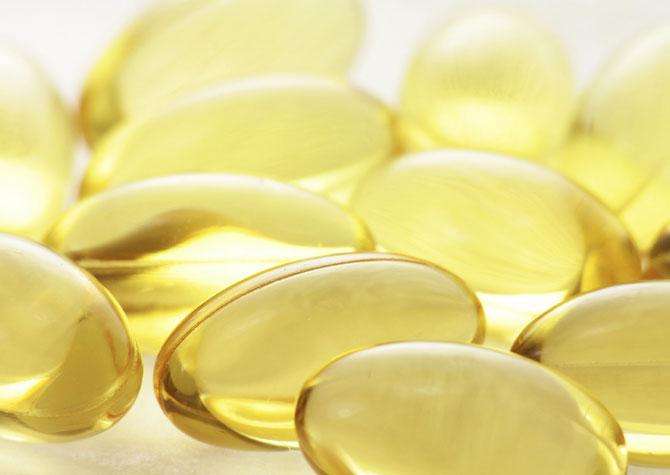The 411 on vitamins

Whether they come from food or supplements, vitamins are essential to almost every process in your body.
But you may not know that for adults, the recommended intake of each vitamin varies by age and gender, and may need to be adjusted based on specific health issues.
"Most people aren't aware that the human body may need different nutrients at different times," says Sohrab Mobarhan, MD, a gastroenterologist at Rush University Medical Center who studies the effects of nutrition on disease.
The next time you visit your doctor for a routine checkup, talk to him or her and make sure you're getting all the nutrients your body requires for optimal health. Special vitamin needs include the following:
1. While pregnant or breastfeeding
Work with a doctor before, during and after pregnancy to ensure both mom and baby are getting the right mix of all nutrients, including vitamins, Mobarhan says.
Women need extra folates very early in pregnancy to prevent birth defects, such as spina bifida, and while breastfeeding to replenish their own store of folate. To fuel the body and help their babies grow, pregnant women also need more of vitamin C, vitamin B1, vitamin B2, vitamin B6, vitamin B12, pantothenic acid and niacin.
Breastfeeding moms need all of those, plus additional biotin and vitamin E. Most of these extra vitamins are easily obtained from food or a prenatal multivitamin, which most women need to take during pregnancy.
2. After age 50
At this time, the body needs more vitamin D (ask your doctor how much is right for you). A deficiency of vitamin D, which aids in the absorption of calcium, may enhance the process of osteoporosis.
You may also need more B12, since many people over the age of 50 lose the ability to extract B12 from ingested food. Vitamin B12, like the other B vitamins, is important for metabolism. It helps in the formation of red blood cells and in the maintenance of the central nervous system.
If you're 50 or older, be aware of the potential for vitamin B12 deficiency and ask your physician to consider measuring your serum B12 to see if you need to take supplements or consume more B12-rich foods. Liver, beef, chicken, pork, ham, fish, whole eggs, milk, cheese and yogurt are all excellent sources of this important vitamin.
3. After age 70
Try to get even more vitamin D than you did at age 50, because vitamin D deficiency may aggravate osteoporosis. Many foods are not fortified with vitamin D or have a very low content of this vitamin.
"The human body actually makes its own vitamin D when sunshine hits the skin," Mobarhan says. "But in certain parts of the country, including the Chicago area, the incidence of vitamin D deficiencies is high. In addition, many gastrointestinal diseases, such as inflammatory bowel disease, interfere with vitamin D absorption."
He recommends basking in the sun for six or seven minutes every day during the spring and summer before putting on sunscreen. And don't worry: Such a short exposure won't raise your risk of skin cancer.
Vitamin dos and don'ts
Ideally, most vitamins should come from a healthy, varied and balanced diet, Mobarhan says. He encourages people to eat their five servings of fruits and vegetables each day—especially vegetables, which are full of nutritional surprises.
For example, a half-cup of red bell pepper contains twice as much vitamin C as an orange. And two medium carrots have more vitamin A than most adults need in a day.
Too many adults fill their daily caloric needs with junk food and soft drinks, which lack nutrients, Mobarhan says. Alcohol also significantly depletes vitamins in the body.
When taking some vitamin supplements, use caution, because loading up vitamins can actually do more harm than good. "Taking mega doses of vitamins or large doses of a single vitamin is dangerous," he says. "In some cases, very dangerous."
For instance, consistently exceeding the recommended daily allowance of vitamin A—900 micrograms daily for males age 14 and older; 700 micrograms daily for women age 14 and older—can lead to headaches, birth defects, liver damage, bone and joint pain, and other serious problems.
To get the vitamins you need, always think food first. "Put some energy into changing how and what you eat," Mobarhan says. "One of the greatest pleasures in life is eating healthy, fresh food that is prepared well."

















